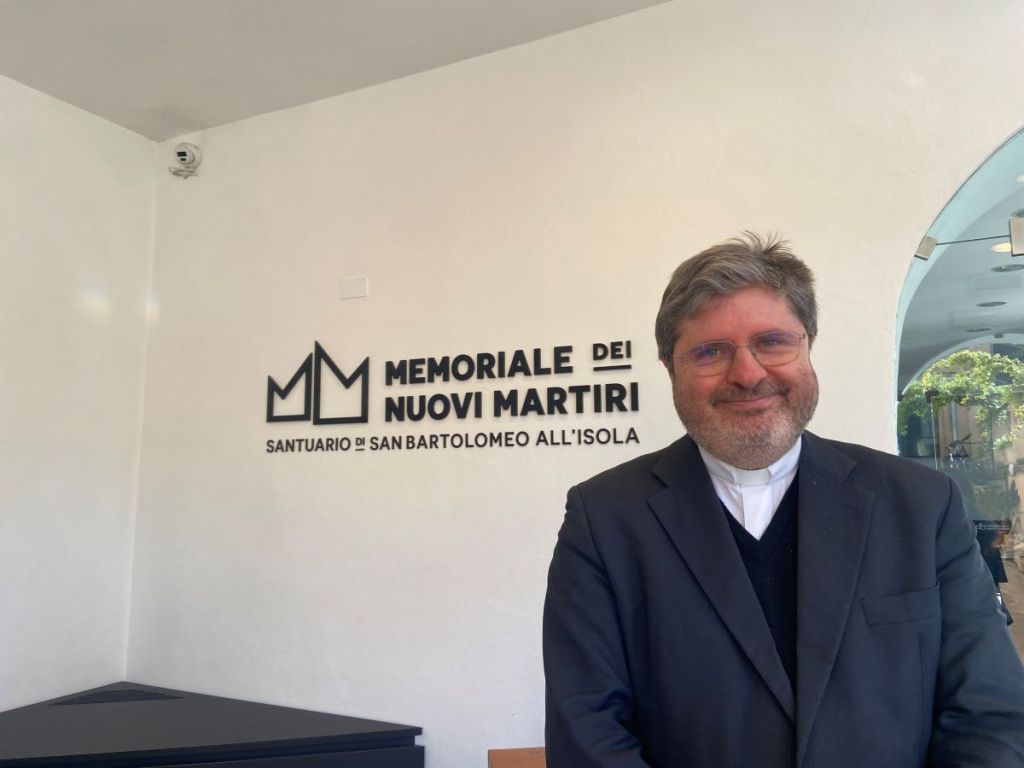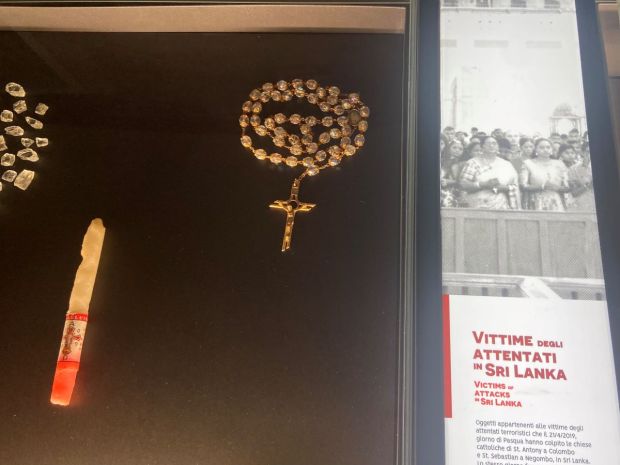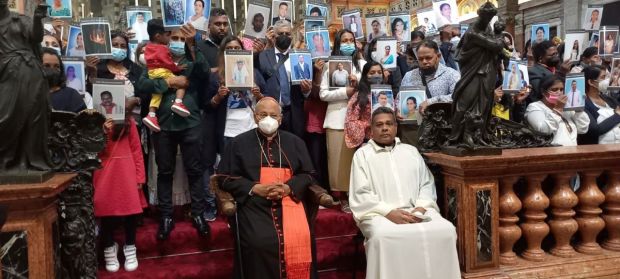On April 21, 2019, Easter Sunday, around 270 people died in Colombo, Sri Lanka, as six suicide bombings hit several areas across the city, including three churches. Today, in another church almost 5000 miles away in Rome, an Easter candle, shards of glass and other objects found after the attacks, are featured in a memorial dedicated to modern day martyrs across the world.
As the nation commemorates the fifth anniversary of this tragic event this coming Sunday, the Church in Sri Lanka wants to begin the process of investigating whether the victims can be recognized as martyrs and eventually blessed. Aleteia reports on how their memory is preserved in Rome.
“I see no difference between the Church's first martyr St. Stephen and the victims of the Easter Sunday terrorist attack in Sri Lanka,” Monsignor Joe Neville Perera, the representative for Catholic Sri Lankans in Italy at the Italian Bishops’ Conference, told Aleteia. “Like St. Stephen, the blood of the victims was also shed out of love for Jesus Christ.”
“When a member of the faithful goes to church he goes towards the Lord and in the same way the victims, by going to church on Easter Day, did not deny their faith but rather gave their lives as a sacrifice in the name of faith; this is summed up in the word martyrdom.”
The witness of modern martyrs
At the Basilica of San Bartolomeo all’Isola (Saint Bartholomew on the Island), on the Tiber Island in the center of Rome, a memorial dedicated to modern martyrs features several objects that were found on the floor of the destroyed churches in Colombo in the aftermath of the bombings. The broken head and body of the statue of an angel, an Easter candle with 2019 written on it, shards of glass from the windows, a large rosary and a watch face, all bear witness to the destruction and violence that the faithful gathered to celebrate Easter witnessed on that Sunday.
“We don’t know to whom these objects belonged to but they talk to us about the faith of the Sri Lankan people, [...] who were struck, helpless, while they were praying on Easter,” said Father Angelo Romano, rector of the Basilica of San Bartolomeo all’Isola. “Violence against places of worship is the most hateful thing because it is violence against people who are not doing anything offensive against anyone, they are simply praying.”

The bombings in Colombo targeted three churches, two Catholic and one Protestant, and three luxury hotels. The attacks caused around 500 injuries and 269 deaths. They are believed to have been perpetrated by local Islamist militant groups, with apparent links to the Islamic State.
The objects “so that we don’t forget”
The objects were brought to the Church in Rome in October 2019 by Father Jude Raj Fernando, rector at the time of St. Anthony’s Shrine in Colombo, one of the churches that was bombed. In an event at the Basilica of San Bartolomeo at the time, he shared the experience of having lived through such a harrowing moment only a couple of months earlier.
“I remember the testimony of the rector well, it was emotional because he told us what had happened, this drama, this tragedy of this church full of the dead and full of the wounded,” Father Romano recalled. “Men, women, children, elderly, young people, all mixed together in this tragedy.”

“[These objects] are an important testimony of those Christians who have to fear being subjected to violence for just going to pray,” he added. “In many parts of the world even just going to mass or going to church is a risk. This is something that we always want to remember so that we don't forget about these Christian communities that live in these very difficult conditions.”
The possible opening of the beatification cause
On April 21, 2024, Cardinal Malcolm Ranjith, Archbishop of Colombo, will receive a petition signed by thousands of faithful that he will then transmit to the Dicastery for the Causes of Saints with a formal request to open a cause to evaluate the martyrdom of the victims of the massacre, Monsignor Perera explained.
Five years in fact must pass from the person’s death in order for a cause to be opened. If the Dicastery approves, the Archdiocese of Colombo will then be able to open an inquiry into beatification at the local level, meaning they will begin gathering testimonies and documents on the attacks to then be sent to the Vatican at a later date for further consultation and approval.
In Rome on Sunday, Sri Lankans will gather in the center of the city to ask for justice for the victims, as the perpetrators have still not been condemned. They will then celebrate a mass at 15:30 in their memory at the Basilica of the Twelve Holy Apostles, a five-minute walk from the Trevi Fountain.
“A commemoration like this is essential as we cannot remain silent [...], we must cry out demanding justice for the victims. As Catholics we are ready to forgive the perpetrators of these vile attacks but we want to know the names of those we forgive,” said Monsignor Perera. “The commemoration is not only an event where we remember the victims, but also a spiritual time of prayer for their souls and of closeness to the families of the victims.”



